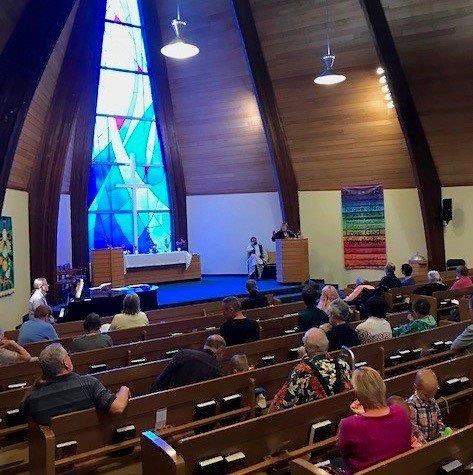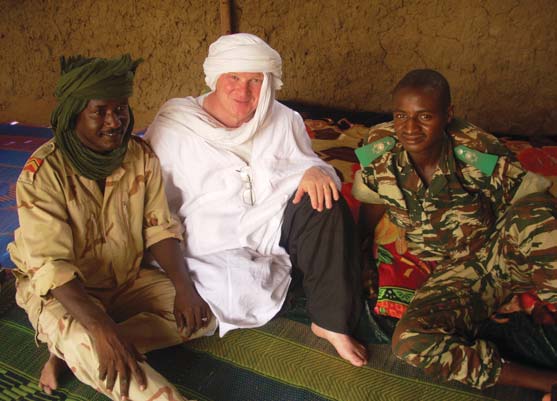Just Peace Sunday

The Thirtieth General Synod called on the congregations of the United Church of Christ to mark the Sunday preceding September 21 (which the United Nation recognizes as the “International Day of Prayer for Peace”) as Just Peace Sunday.
“As he came near and saw the city, he wept over it, saying, ‘If you, even you, had only recognized on this day the things that makes for peace! But now they are hidden from your eyes. Indeed, the days will come upon you, when your enemies will set up ramparts around you and surround you, and hem you in on every side. They will crush you to the ground, you and your children within you, and they will not leave within you one stone upon another; because you did not recognize the time of you visitation from God.” – Luke 19:41-49
About the 2024 Campaign
As we see in the news and around us, violence and conflict are all too common in our communities and around the globe. Just as Jesus wept over the city of Jerusalem, it is right that we mourn in the face of the suffering and pain around us. It is right that we lament— even weep – not only as a response to the violence around us but also our own failure to recognize that another way is possible, a more just and peaceful world that lies just beyond our reach.
As Christians, we are called to follow God’s movement and Jesus’ ministry to the margins – to be in proximity and prayer with communities and places in pain. We must not remain at an emotional arm’s length, but rather, like Jesus, at times draw “near” to the anguish if we are to be in true solidarity with others. Let us consider several places today that demand our attention.
The Council on Foreign Relations has a “Global Conflict Tracker” that maps out major points of conflict at any given moment. Currently there are nearly thirty places of major conflict and war around the world, including the prolonged 2 ½ year war between Ukraine and Russia that has killed over 30,000 civilians and hundreds of thousands of soldiers on both sides. Likewise, the conflict between Israel and Hamas has killed over 40,000 Palestinians and led to a massive humanitarian crisis, which the United Church of Christ has recently labeled as genocide. Prisoners and hostages remain imprisoned, and recent provocations risk escalating the war into a wider conflict with Iran and Lebanon.
In Africa, the ongoing civil war in Sudan has killed over 15,000 people, and an astonishing 8.2 million are displaced. In Latin America, gang violence in Mexico and other countries fuels migration just as Colombia’s peace process remains tenuous. Across Asia, a civil war is worsening in Myanmar and tensions are increasing over territorial disputes in the South China Sea.
In the United States, gun violence, domestic violence, hate crimes, and systemic attacks on vulnerable communities are so prevalent they often do not make the news.Our nation is bracing itself for possible election violence as our children are raised amidst a culture of violence.
As we draw close to the realities of our world, and near to the pain, it is right that we weep.
However, as Jesus looked out over Jerusalem and felt the pain of empire and communal violence, Jesus also pointed to another way. He called us to recognize the “things that make for peace.” Too often, we fail to see these “things”, the practices and techniques that do make peace, just as we fail to celebrate the peacemakers doing that work (despite Jesus calling them “blessed” in his Sermon on the Mount). When is the last time we honored individuals working in fields of peacebuilding, diplomacy, or conflict resolution at a local sporting event, or even in our churches? Despite the vision of Isaiah 2:4, we continue to bend our global resources not into plowshares, but just more swords at military expenditures escalate to historic levels.
While those “things that make for peace” may seem hidden given the state of the world, they are there if we look closely. For years the United Church of Christ has lifted up Just Peace principles, 10 Just Peacemaking Practices, and a commitment to nonviolence to bring about our vision of a Just World for All. Additionally, we engage directly and collaborate with partners to support greater diplomacy, development, and direct peacebuilding efforts.
On this Just Peace Sunday, let us draw near to the cities, the people, the places of pain and suffering in the world. Let us weep together, but also keep watch for ways in which God is at work drawing us toward peace. Let us recognize, learn about, and celebrate the “things that make for peace” as well as the peacemakers in our world. Let us recommit to the “way” of peace that Jesus lived and promises to give us (“Peace I leave with you; my peace I give to you”) not as the world gives but through the way of forgiveness, the way of nonviolence, the way of peace, the way of love. Finally, let us be reminded of our UCC Statement of Faith and together take “courage” in the struggle for justice and peace.
-Rev. Michael Neuroth, Director of the Washington D.C. Office
Download the Just Peace Handbook
In 2015, the 30th General Synod held in Cleveland, OH marked the UCC’s 30th anniversary as a Just Peace Church and called for a renewal of the UCC’s Just Peace witness. This booklet is intended to accompany this resolution and be a resource for all levels and areas of the church for further work and witness, especially to local congregations declaring or recommitting themselves as “Just Peace Churches.” This resource includes a summary of the historical and theological uniqueness of the Just Peace vision; the biblical and theological grounding for Just Peace values; and recommended steps for how to become a Just Peace Church. (Download.)

Questions
For more information contact uccjustpeace@gmail.com and join us in conversation via Facebook and Twitter @JustPeaceUCC.
